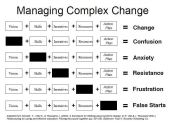posted 8 years ago
I've been gardening a long time and an fairly new to permaculture ideas and concepts. What I can recommend for you as far as reading material are books on building soil and soil management. Regardless of how you pursue what your idea of permaculturing/gardening/self sufficiency/homesteading is, it's going to involve growing in soil. I have yet to read any books specifically about permaculture, and I'll get there, but I have read many about soil. Cultivating, nurturing and managing healthy soil will yield you good results no matter what you choose to grow. May I suggest Building Soils Naturally by Phil Nauta, and The Soul of Soil by Grace Gershuny & Joe Smillie, just to name a few. Those publications teach different approaches to management and a good understanding of the soil food web and how everything is connected, and how soil can be nurtured and improved. They're easy to read and understand and can help you get started off right. My wife and I are ourselves looking for some land, and won't be able to physically go see them until July when we're on vacation, but if I may suggest to you what I plan to do is take a shovel with me. We may find the ideal property in a bucolic setting, but if I stick the shovel in the ground (or can't due to rocks) and don't like what I see I'll know to keep looking. I also plan to have a clause in the buyers contract to give me 90 days to send soil samples to a lab for analysis, among other things. I will do a traditional soil analysis to see what's going on, and I will also do tests for toxic chemical residues. Last year I read a story about a retiring couple, buying their dream homestead. They closed on the land, were building their home, and a soil analysis came back from the lab stating "abnormally high lead content. Do not eat any foods grown in this soil". How heartbreaking is that? I hope this helps and I wish you luck finding the right piece of land!
Edit: I forgot to mention I intend to have wording in the clause in my buyers contract to have the seller pay for the lab testing if I deem the results unacceptable for my farming needs and do not buy the land. We'll see if I get away with that or not. After all, I can't afford to spend hundreds per land site over and over again.
"Study books and observe nature; if they do not agree, throw away the books." ~ William A. Albrecht





 2
2




 2
2





 1
1






















